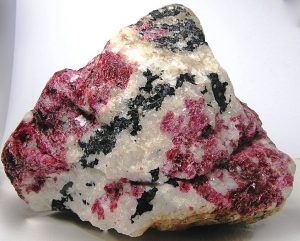
Rare earth metals have long fascinated scientists and engineers due to their unique properties and applications in various industries. Among these properties, magnetic behavior stands out as a crucial characteristic that has garnered significant attention. In this blog post, we will delve into the world of rare earth metals and explore which ones exhibit magnetic properties. By understanding the magnetic nature of these metals, we can unlock their potential for a wide range of technological advancements.
- The Basics of Rare Earth Metals:
Before diving into the magnetic properties, let's first establish a foundation by understanding what rare earth metals are. Rare earth metals are a group of seventeen elements, including lanthanum, cerium, praseodymium, neodymium, and others. These metals possess unique electronic configurations, leading to their exceptional physical and chemical properties. - Magnetic Rare Earth Metals:
Not all rare earth metals exhibit magnetic behavior. However, a subset of them, known as the "magnetic rare earth metals," possesses magnetic properties that make them invaluable in various applications. The key magnetic rare earth metals include neodymium, samarium, and dysprosium. - Neodymium: The King of Magnets:
Neodymium is perhaps the most well-known magnetic rare earth metal. It possesses the highest magnetic strength among all elements, making it ideal for applications requiring strong magnetic fields. Neodymium magnets are widely used in motors, generators, magnetic resonance imaging (MRI) machines, and even in consumer electronics like headphones and speakers. - Samarium: A Versatile Magnetic Element:
Samarium is another magnetic rare earth metal that exhibits unique magnetic properties. It is known for its high Curie temperature, which means it can retain its magnetism at higher temperatures compared to other magnetic materials. Samarium-cobalt magnets find applications in aerospace, automotive, and energy industries, where high-temperature stability is crucial. - Dysprosium: Enhancing Magnetic Performance:
Dysprosium is a magnetic rare earth metal that is often used as an additive to enhance the magnetic properties of other materials. It has a strong magnetic anisotropy, which means it prefers to align its magnetic moments in a specific direction. This property makes it valuable in the production of high-performance magnets used in electric vehicles, wind turbines, and other renewable energy systems. - Other Magnetic Rare Earth Metals:
While neodymium, samarium, and dysprosium are the most prominent magnetic rare earth metals, other elements like gadolinium, terbium, and holmium also exhibit magnetic behavior. These metals find applications in specialized areas such as magnetic refrigeration, magneto-optical devices, and data storage systems.
Conclusion:
Rare earth metals possess a diverse range of properties, and their magnetic behavior is of particular interest. Neodymium, samarium, dysprosium, and other magnetic rare earth metals play a vital role in numerous technological advancements. Understanding their magnetic properties enables us to harness their potential in various industries, from electronics and energy to healthcare and beyond. By exploring the magnetic nature of rare earth metals, we open doors to innovation and pave the way for a more sustainable and technologically advanced future.


